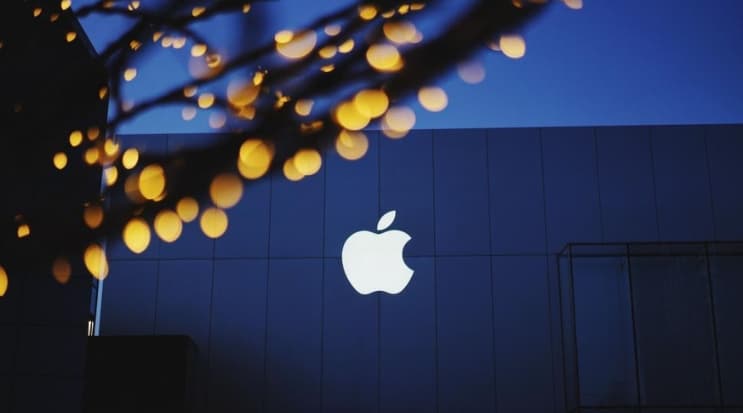
Apple Ordered to Pay $502 Million in UK Patent Dispute: Court Ruling and Implications
UK Court Rules on Patent Dispute Between Apple and Optis: A Major Win for Optis
In a significant legal victory for Optis, Apple has been ordered by a UK court to pay a $502 million lump sum in a patent dispute concerning 4G and 5G technology. The court ruling marks another chapter in the ongoing global battle over patent rights, technology licensing, and the protection of intellectual property in the tech industry. This decision comes after a series of intense legal proceedings between Apple and Optis, raising important questions regarding international patent law and its impact on global technology companies.
The Patent Dispute: Apple vs. Optis
Background of the Legal Conflict
The dispute between Apple and Optis began over allegations that Apple had infringed on Optis’ patents related to essential 4G and 5G standards. These patents are crucial for mobile communication technologies, and companies that wish to produce devices with these capabilities are required to obtain a license for using such essential patents.
Optis, a patent licensing firm, holds a portfolio of patents related to the telecommunications industry. It alleged that Apple had failed to reach a fair licensing agreement for the use of these patents, despite being one of the largest manufacturers of mobile devices using 4G and 5G technology. The case reached the UK courts, where it was examined under the UK patent law framework.
The Court's Ruling
In a landmark judgment, the UK court ruled in favor of Optis, ordering Apple to pay $502 million as a lump sum. The court found that Apple had infringed on patents that Optis holds, and Apple’s failure to negotiate a fair license for using these patents constituted a violation of patent law principles. The amount is part of the damages to compensate for the infringement, which could increase further depending on further rulings and potential additional penalties.
Patent Law and International Implications: A Global Perspective
International Patent Disputes and Global Technology Companies
This ruling has significant implications not only for Apple but also for the wider tech industry. International patent disputes like these highlight the ongoing tension between global companies and patent holders, especially when it comes to essential patents required for next-generation technologies like 5G.
In this case, the UK court's decision may set a precedent for other jurisdictions that handle similar cases. The outcome could influence technology companies worldwide, especially those operating across multiple jurisdictions, to reconsider how they negotiate patent licenses and intellectual property rights.
Apple, a dominant player in the tech market, now faces the challenge of dealing with the financial and legal consequences of the ruling. Additionally, this case reflects the broader trends in international law where patent rights are increasingly being tested as technologies evolve, particularly in telecommunications and other high-tech sectors.
The Role of Patent Licensing and Fair Use in the Tech Industry
Patent Licensing: Ensuring Fair Compensation for Innovation
The issue at the heart of this legal dispute revolves around patent licensing and whether Apple acted in good faith in negotiating the terms. Under international patent law, companies that hold patents for essential technologies are required to offer licenses to other companies on fair, reasonable, and non-discriminatory (FRAND) terms.
For companies like Optis, patent licensing is an essential business model. This case serves as a reminder that when businesses fail to comply with FRAND obligations, they may face substantial financial penalties. On the other hand, it also emphasizes the importance for tech giants like Apple to ensure that they engage in fair negotiations to avoid legal conflicts and hefty damages.
Implications for Apple and the Global Tech Industry
Apple’s Response and Future Considerations
Apple, known for its aggressive defense of intellectual property, has not taken the ruling lightly. The company has indicated that it plans to appeal the decision, arguing that the ruling is unjustified and that the amount demanded is excessive. If the appeal is unsuccessful, the decision could set a precedent that might have repercussions for Apple’s ongoing dealings with other patent holders in the future.
This ruling is not an isolated case. Patent disputes have become increasingly common in the tech industry, particularly as companies race to develop and deploy cutting-edge technologies like 5G. As patent portfolios grow more complex and essential to modern technological innovation, courts around the world will likely continue to play an essential role in resolving these disputes.
Global Impact of the Ruling on the Tech Market
For the broader tech market, this case signals the growing importance of patent law in the global technology sector. Companies involved in high-tech industries such as telecommunications, electronics, and smart devices will need to ensure that they are adhering to patent rights to avoid costly lawsuits. This ruling may also prompt governments and regulatory bodies to revisit existing patent frameworks to ensure they adequately address the challenges of modern technological developments.
Legal Implications: The Future of Patent Law in the Tech Industry
As technology continues to evolve rapidly, patent law will play an increasingly important role in determining how companies innovate, collaborate, and compete in the global marketplace. Apple’s case with Optis illustrates the challenges businesses face in managing intellectual property rights while maintaining fair competition. The UK court’s ruling not only emphasizes the importance of respecting patent rights but also serves as a cautionary tale for companies in the tech sector about the risks of ignoring fair licensing practices.
In conclusion, the Apple vs. Optis dispute highlights the ongoing tensions in international patent law and underscores the need for companies to carefully navigate their intellectual property agreements. For businesses in the tech industry, this case serves as a stark reminder of the potential consequences of not adhering to global patent standards.
For any enquiries or information, contact info@thelawreporters.com or call us on +971 52 644 3004. Follow The Law Reporters on WhatsApp Channels